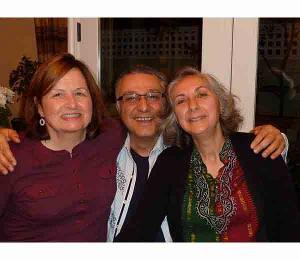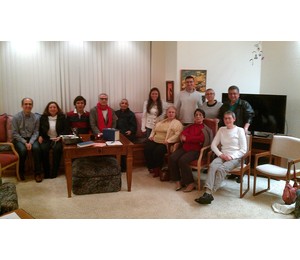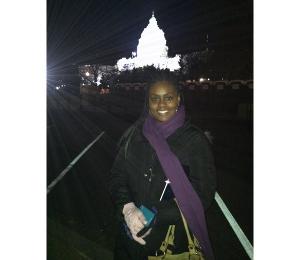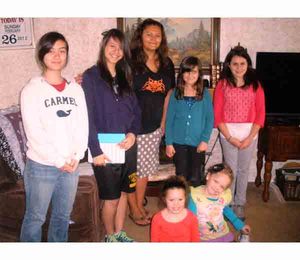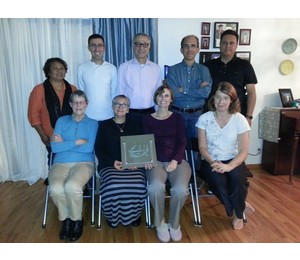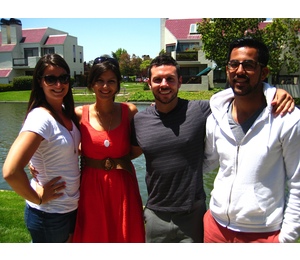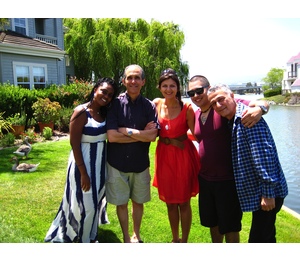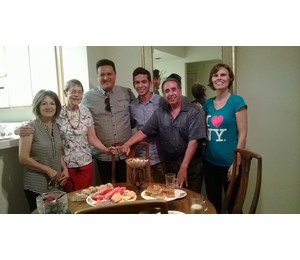Bahá’ís all over the world are celebrating the bicentenary of the birth of Bahá’u’lláh, the Founder of the Bahá’í Faith. Two hundred years after His birth, the Faith of Bahá’u’lláh has spread to virtually every country in the world. Learn more about these worldwide celebrations by visiting bicentenary.bahai.org
Who was Bahá’u’lláh?
Bahá’u’lláh was born into a wealthy and powerful family in Iran in 1817, but He gave up all his wealth and possessions to bring God’s Message for today. Because of His Faith, Bahá’u’lláh was exiled from country to country and imprisoned for much of His life. But all this only served to spread His teachings to a wider audience. He was still able to deliver God’s Message to the world: the message of unity, peace, and justice for all people and all nations.
The Promised One
Bahá’ís believe that in each age God sends a Messenger of God to mankind. Those we know from the past have been the great religious teachers such as Krishna, Moses, Buddha, Christ, and Muhammad. They have all taught us about God and how we should live our lives. Bahá’ís understand that each Messenger builds upon the Messages of Those gone before. Like children in a school, we learn more from each Teacher, so that our individual souls may progress towards spiritual perfection, and human society may make progress towards equality, prosperity, and peace. All the Messengers in the past have promised that a great World Teacher would come Who would bring an age of peace to mankind. Bahá’ís believe that Bahá’u’lláh fulfilled all the promises and prophecies of the past when He announced His Message to the world. We believe that the same spirit which was in all the Messengers is in Bahá’u’lláh.
The name Bahá’u’lláh means “the Glory of God” or “Glory of the Lord”. This title is mentioned in many prophecies in the Holy Books. Bahá’ís believe that Bahá’u’lláh is the Prince of Peace promised to the Jews by Isaiah; to Christians, He is Christ returned “in the glory of the Father”; to Shi’a Islam the return of the Imam Husayn; to Sunni Islam the descent of the “Spirit of God”; to the Hindus the reincarnation of Krishna; to the Buddhists the fifth Buddha (Maitreya, the Buddha of universal fellowship).
The Message for Today
Each Messenger brings social teachings designed for that particular age. The teachings of Bahá’u’lláh are for the age we live in today. In a few hundred years’ time, another Messenger will appear, and so on throughout the ages. The coming of Bahá’u’lláh is the beginning of a new age in the history of mankind.
The main theme of the Bahá’í Faith is unity. This is what is most needed in this day. Over the millennia, we have learned to live peacefully together in larger and larger groups. Now is the time for a world civilization, world peace, and world unity. This is the first time in our history that it is physically possible for the world to function as one.
Another fundamental aspect of unity is the recognition that every person is of value and that everyone should be treated with respect. One important Bahá’í principle is that we should not talk about people behind their backs. This has a very poisonous and destructive effect. Instead, we should concentrate on someone’s good points and appreciate those. A unique feature of the Bahá’í Faith is its system of administration. There are no individual leaders. Instead, all local and national assemblies and the world body, the Universal House of Justice, are elected by secret ballot. No-one is nominated for election and no-one tries to convince people to vote for a particular person. Instead, after prayer and reflection, Bahá’ís vote for those they feel are the most able and at the same time the most spiritual.
Building Communities
As well as working for peace and justice at a national and international level, Bahá’ís work to bring people together at a local level too. Bahá’ís try to inspire and empower people to improve their own lives and the lives of those around them. All age groups are involved, from the youngest to the oldest. For children, there are classes where they learn to practice virtues such as kindness, honesty, and generosity, learning through songs, games, art, and crafts. Those aged 11-15 are at a very special stage. At this age, many young people have a strong sense of justice and a lot of energy but they are trying to understand their place in the world. The Bahá’í junior youth groups are aimed at directing all this energy into making the world a better place.
Bahá’ís are always learning. Adult Bahá’ís and their friends spend time together in study circles, which includes learning how to run the classes for children and the junior youth groups. A Bahá’í aims to lead a lifetime of service to humanity.
The Future
The Faith of Bahá’u’lláh has much to offer the world today and in the future. Here are some
examples of Bahá’u’lláh’s teachings:
“The earth is but one country and mankind its citizens.”
“…choose one language from among those now existing or…adopt a new one, and…select a common script, both of which should be taught in all the schools of the world.”
“If carried to excess, civilization will prove as prolific a source of evil as it had been of goodness when kept within the restraints of moderation.”
“Trustworthiness is the greatest portal leading unto the tranquility and security of the people. In truth the stability of every affair hath depended and doth depend upon it.”
“Ye are the fruits of one tree, and the leaves of one branch. Deal ye one with another with the utmost love and harmony, with friendliness and fellowship.”
“So powerful is the light of unity that it can illuminate the whole earth.”
For more information on the Baha’i Faith, please visit www.Bahai.us
For more information on the Bicentenary, please visit www.bahaullah.org


